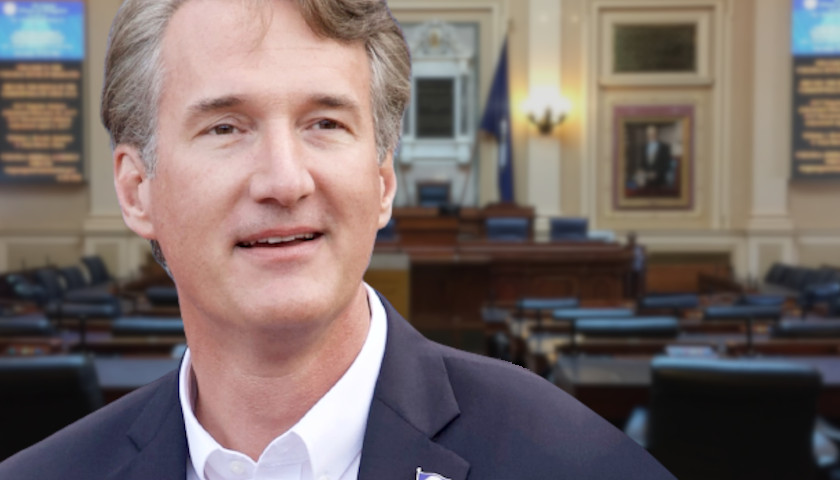by Shaun Kenney
This is a long one. Which probably doesn’t surprise long-time TRS readers, but bear with me — I’m going someplace with this one.
One of G.K. Chesterton’s observations is that it’s not always that people don’t understand the answer but that they never properly understood the question. That is probably true with most elections.
So grab that cup of coffee or tea and sit with me for a moment.
Let’s talk.
Alexsandr Solzhenitsyn is much less of a household name if he ever was one to begin with — author of the oft-quoted and barely read Gulag Archipelago.
Upon his arrival to the United States after fleeing the Soviet Union, his first remarks upon coming to the West were not ones of relief but utter horror.
Instead of a repressive police state, Solzhenitsyn discovered a tabloid media on the verge of becoming the 24/7/365 monstrosity we see today. Solzhenitsyn’s efforts to avoid the public eye were fruitless, and within a matter of days he was quick to observe:
“You are worse than the KGB!”
By 1978, Solzhenitsyn’s Harvard commencement speech was more indictment than anti-communism, because he saw the same disease in the capitalist-driven West that he observed at work in the communist-driven East:
Even if we are spared destruction by war, our lives will have to change if we want to save life from self-destruction. We cannot avoid revising the fundamental definitions of human life and human society. Is it true that man is above everything? Is there no Superior Spirit above him? Is it right that man’s life and society’s activities have to be determined by material expansion in the first place? Is it permissible to promote such expansion to the detriment of our spiritual integrity?
By 1983, such pessimism had crystalized into the one line that perhaps makes him the most famous amongst conservative academia today:
More than half a century ago, while I was still a child, I recall hearing a number of older people offer the following explanation for the great disasters that had befallen Russia: “Men have forgotten God; that’s why all this has happened.”
Since then I have spent well-nigh 50 years working on the history of our Revolution; in the process I have read hundreds of books, collected hundreds of personal testimonies, and have already contributed eight volumes of my own toward the effort of clearing away the rubble left by that upheaval. But if I were asked today to formulate as concisely as possible the main cause of the ruinous Revolution that swallowed up some 60 million of our people, I could not put it more accurately than to repeat: “Men have forgotten God; that’s why all this has happened.”
Men have indeed forgotten God.
Or to return to Solzhenitsyn’s theme in his 1978 Harvard address:
A society which is based on the letter of the law and never reaches any higher is taking very scarce advantage of the high level of human possibilities. The letter of the law is too cold and formal to have a beneficial influence on society. Whenever the tissue of life is woven of legalistic relations, there is an atmosphere of moral mediocrity, paralyzing man’s noblest impulses. And it will be simply impossible to stand through the trials of this threatening century with only the support of a legalistic structure.
In today’s Western society the inequality has been revealed [in] freedom for good deeds and freedom for evil deeds. A statesman who wants to achieve something important and highly constructive for his country has to move cautiously and even timidly. There are thousands of hasty and irresponsible critics around him; parliament and the press keep rebuffing him. As he moves ahead, he has to prove that each single step of his is well-founded and absolutely flawless. Actually, an outstanding and particularly gifted person who has unusual and unexpected initiatives in mind hardly gets a chance to assert himself. From the very beginning, dozens of traps will be set out for him. Thus, mediocrity triumphs with the excuse of restrictions imposed by democracy. (emphasis added)
If one had to put their finger on the problem — and it is a criticism — with the nascent Youngkin administration one will have to start here.
Concerns bordering on obsession with Youngkin’s favorability ratings notwithstanding — 41% according to CNU; 51% according to a poll taken by the Virginia health care industry — it is becoming more and more clear that there is more of a priority of being liked than there is on conquering hills.
Youngkin is no DeSantis to be sure.
Yet therein lies the problem. One could stab their finger at this condition all day long and even go so far as to offer solutions. In the present environment this will be treated as disloyalty. Moving cautiously and timidly, ensuring that each step is flawless and well-founded, only invites Virginia Democrats to use a well-worn playbook forcing their opposition into this pattern of mediocrity and watching poll numbers. If they can keep Youngkin’s handlers there, then so long as Virginia Republicans do not strike at the taproot, Virginia Democrats can wait us out for a better political environment in Washington and another election cycle in 2025. Great for careers; not so great for Virginia.
Is anyone ringing this bell?
Part of what makes one particularly reluctant to even share constructive opinions on this matter is that the coalition is so fragile that Virginia Democrats are doing everything in their power to shatter it. Moreover, the resiliency of a good number of people renders such commentary as more than useless sometimes. Those of us who get it already get it; those who are paid not to get it never will.
Which means that the more difficult task of evicting this moral mediocrity simply is not present in what we are doing here.
Mediocrity being the disease of the postmodern age — everyone an individual just like everyone else — most of us are satisfied with just being satisfied. We win elections and then wonder aloud why the politicians aren’t doing their job. In our intransigence, we keep swapping out leadership expecting different results, but the institutions creating the conditions remain untouched.
Which quite frankly is what people admire in Florida Governor Ron DeSantis, precisely because he does take on the institutions and doesn’t give a damn about the poll numbers.
Men Don’t Follow Titles; They Follow Courage
DeSantis doesn’t exactly have an overwhelmingly Republican state. In fact, Florida Republicans had to rescue their state over the course of time. Yet in just 20 years, through a combination of wise policies and intestinal fortitude, Florida Republicans have turned a reliable Democratic state into a Republican bulwark.
Yet there’s a nervous tick in what DeSantis and even Trump have accomplished that should bother most observers. Rather than a true repudiation of the moral mediocrity we have seen a sort of generational intransigence caused not so much by a moral renewal but by the myopia of the political left moving too far and too fast.
With Obama and Clinton, it was a path of good ol’ fashioned Schumpeterian creative destruction where a bunch of cubicle-dwelling elites were telling blue collar workers that the America they had built and bled for was obsolete. Under McAuliffe and Northam, the same cubicle-dwelling elites were scolding suburban Virginians that their ideal of a color-blind society and certain ontological criteria concerning gender and sexuality were in fact openly racist and bigoted.
The reaction thus far has been purely that — a reaction against the left. Saying no and winning feels good for a moment, but the institutions grind ever forward, which is perhaps what the lake Whittaker Chambers realized when he said he had left the winning side for the losing side. Early euphoria in the late 1980s as the Berlin Wall came tumbling down and the Soviet Union collapsed in 1991 that maybe Chambers was wrong has yielded to a far more grave realization that Chambers was more far-sighted than we had realized, and that Solzhenitsyn accurately perceived the same moral degeneracy. Winning elections or racking up RINOs doesn’t change the unelected institutions hammering your children and grandchildren to openly hate your values and pursue pleasure over a more enduring idea of happiness.
After all, why save when you can spend?
Whitaker Chambers understood the problem better than most as he remained gobsmacked at the lack of motivation among his peers in resisting the political machinations of the left:
I no longer believe that political solutions are possible for us. I am baffled by the way people still speak of the West as if it were at least a cultural unity against Communism though it is divided not only by a political, but by an invisible cleavage. On one side are the voiceless masses with their own subdivisions and fractures. On the other side is the enlightened, articulate elite which, to one degree or the other, has rejected the religious roots of civilization — the roots without which it is no longer Western civilization, but a new order of beliefs, attitudes and mandates.
When Chambers wrote this to his friend the late William F. Buckley Jr., the United States was in the throes of the Cold War and a receding tide of anti-Communism.
Yet what preoccupied Chambers at the time was how this spirit of materialism which presented itself in the form of Soviet Communism and gripped Russia was not a Russian idea but a Western idea, one that had infiltrated the institutions of the West and was being imposed from within. Secular and rationalistic to the point of hostility to the sacred, the Soviets merely added a Russian flavor of horrors consisting of gulags, purges, and the security state. Western flavors involve cancel culture, lawfare, and the security state (which coincidentally is why SB741 ought to be vetoed, Governor). When Chambers remarked that socialism was communism with the claws retracted, he wasn’t terribly far off the mark.
So what of the present day resistance? One suspects that what is lacking in the MAGA Movement — or at least, what has yet to crystalize — is the spiritual and intellectual revolution in thought that precedes the social revolution in ideas. In short, we are saying what we are against but can’t articulate beyond talking points what we are actually for much less why we are for the thing.
Again, from Chambers in Cold Friday:
When the gap grows too clear between the faith and forms of a civilization and the realities of everyday life, masses of men are paralyzed by the discrepancy so that before the old faith they first grow numb, then apathetic, then questioning if not disdainful. They simply by-pass in one degree or another, what no longer corresponds to their reality. It has lost its power to inspire lives. This happens even if they continue outwardly to conform to the old ways. This is the real crisis of the West and the point at which, across a No Man’s Land of apathy, it confronts itself.
I would submit that the present era of reaction is purely that — reaction for its own sake rather than the social revolution seeking to reclaim the institutions from the authoritarian grip of the political left. We move cautiously and timidly to the tune of opinion polling. Meanwhile, our children and grandchildren are taught to hold the values that made America great in open contempt, while those who claim to adhere to these values in the public square couldn’t articulate them if they tried. If they did, they would be digitally stoned — cancelled, ruined financially, branded as racist — in such a way that no one would seek to imitate their example.
Mediocrity triumphs.
All because men have forgotten God; that’s why all this is happening.
We Were Promised Student Vouchers; Start With Public Education
To bend all of this back to Virginia politics and our as-yet unfinished General Assembly session, the institutions are licking their chops at yet another anodyne budget that will continue to fuel our slow-cycle demise.
Even on the very minor reforms reflected on Youngkin’s education agenda, the unelected institutions are wholesale and with near unanimity at sixes-and-sevens with Governor Youngkin on even the low-level common-sense changes such as tip-lines (perfectly fine for Northam; not so good for Youngkin), removing CRT and getting rid of gender ideology in the classroom.
To wit? Superintendents who quibble with the circular letter criticizing Youngkin’s education agenda didn’t even have the moral courage to put their names in print, as if Chambers and Solzhenitsyn didn’t see that one coming.
Is it becoming more clear now?
Of the seven institutions, the political left owns five (media, bureaucracy, academia, entertainment, education) while conservatives have one (military + first responders) and are struggling to keep the other (churches). All the political left has to do is make the steal more expensive than it is worth and run out the clock, knowing that they aren’t facing a revolution in thought but a mere reaction they can wait out like any high tide.
One can see the play as Virginia’s unelected bureaucrats revert to the familiar playbook of Massive Resistance when it comes to improving and restoring public education to the actual role of leading forth rather than babysitting. Virginia’s media outlets are in near unanimity, pouring on the disdain and contempt for even attempting to touch the third rail in any meaningful form. Academia is wary if allergic to any changes. Yet Republicans who were in overdrive in November are finding the will to fight a bit elusive as the Democrats are coming to realize something very important.
They own the institutions in Virginia. They know that if they can keep their fingernails clawed into their overreach that time will normalize the absurd. After all, as the late Hunter S. Thompson said:
[W]e’re living in chaotic times. What can I say, when the going gets weird, the weird turn pro.
They know precisely where to attack too. Not on conviction or gravitas. Not against a similarly galvanized movement or idea.
But polling numbers. Popularity. Are you liked?
Virginia Democrats are starting to call our bluff realizing no one is going to martyr themselves in the public square for a fraction of what we claim to believe. Some might try to build a name temporarily screaming into the void, but no one is going to risk their careers much less their future political prospects in the face of a repressive media and the blue checkmarks on Twitter.
In short, Virginia Democrats are measuring our resolve and finding it wanting — and they are calling us out on it. Pace Burke, all that is required for mediocrity to triumph is for good men to desire being liked.
Are they right?
One instinctively doubts this, though Chambers and Solzhenitsyn both believed that the idea of the West would never be revived until there was a spiritual regeneration in the things good, beautiful and true — things the late philosopher Roger Scruton hammered home and was promptly cancelled in doing so. Which means Scruton offers insights so worth exploring, the left wants to make sure you never read much less act upon sentiments such as these:
The real reason people are conservatives is that they are attached to the things that they love, and want to preserve them from abuse and decay. They are attached to their family, their friends, their religion, and their immediate environment.
In short, the West would have to find something to fight and bleed for that wasn’t just crass consumerism and polling numbers.
Maybe DeSantis is showing us the way.
– – –
Shaun Kenney is the editor of The Republican Standard, former chairman of the Board of Supervisors for Fluvanna County, and a former executive director of the Republican Party of Virginia.
Background Photo “Virginia House of Delegate Chamber” by Antony-22. CC BY-SA 4.0.




